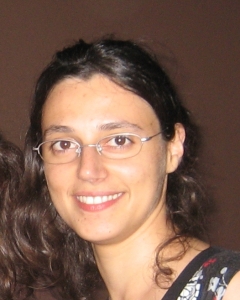
|
|
|
MPPG09 Molecular Markers and Population Genetics (2nd course) |
|
IMPORTANT DATES for MPPG09
|
Instructors: |

Mark Beaumont is currently a research fellow at the University of Reading, where he has been since 1999. He obtained his PhD in population genetics at the University of Nottingham in 1988. His main research focuses on how genetic information can be used to uncover the demographic history of populations, and how to disentangle the effects of demography and selection. University of Reading, Reading, UK |

Lounès Chikhi obtained his PhD working in population genetics of fish, in Montpellier. He is currently based at the IGC, with the Population and Conservation Genetics group. He held post-doctoral positions at the University of Ferrara, at Queen Mary and Westfield College and at the University College London. He is interested in the use of genetic data to improve our understanding of the past demographic history of different species, including our own. His main interests span from conservation genetics of wild and domesticated species to human recent evolutionary history. Laboratoire Evolution et Diversité Biologique, CNRS, Toulouse, FR
|

Vitor Sousa is a PhD student working at the IGC and the Faculdade de Ciências da Universidade de Lisboa. He is interested in developing computational methods in order to draw inference on demographic parameters using genetic data, with applications in conservation genetics and human evolution. Fac. Ciências da Universidade de Lisboa, Lisboa, PT
|

Bárbara Parreira is graduated in Animal Biology at Faculdade de Ciências (FCUL). She post-graduated in statistics applied to biology and health sciences. Currently she is doing her PhD between Population and Conservation Genetics, and Evolutionary Biology groups, at IGC. She is interested in applying population genetics approaches to biological conservation and epidemiology. Instituto Gulbenkian de Ciência, Oeiras, PT |
Course description:Genetic data are increasingly used by ecologists and evolutionary biologists in general. It has thus become important for many biologists with different levels of experience to produce and analyse genetic data. In this course we shall take a practical approach to the analysis of genetic data, but we will also provide some of the theoretical background required to understand the outputs of the software used. Mornings will usually be devoted to introduce notions that will be applied in the afternoon using freely available software. In particular the following software will be used: ARLEQUIN and GENETIX to analyse classical population genetic data, STRUCTURE and GENECLASS2 to look for hidden structure and assign multilocus genotypes, Bottleneck and msvar to detect and quantify population size changes, IM to estimate gene flow and divergence times, Fdist and/or BayesFst to detect selection. The R statistical package will also be introduced and used to analyse genetic data and outputs of the software, and to simulate simple processes. The software ms that allows to simulate genetic data will also be introduced together with a user-friendly version called Gms. |
|
Course Pre-requisites: Basic Molecular Biology. Population Genetics fundamentals (for example, Hardy-Weinberg equilibrium), basic Probability Theory and Statistics (for example, understanding the concept of Conditional Probablility). Previous knowledge in these areas might do, with a refresh. Elementary computing skills. |
|
Detailed Program |
|
Instituto Gulbenkian de Ciência, Apartado 14, 2781-901 Oeiras, Portugal Last updated: May 4th 2009 |